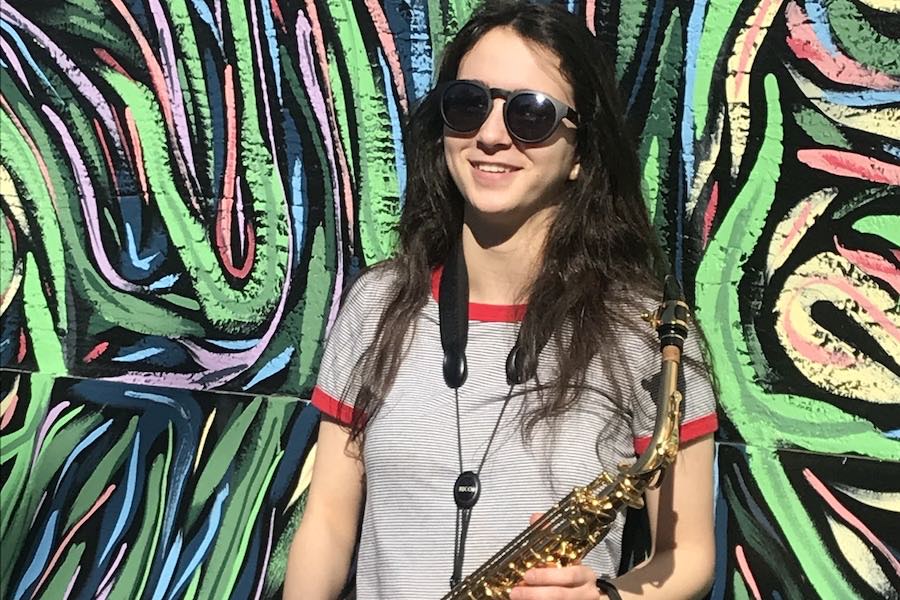This Lower Merion High School Senior Is All About Women in Jazz
Olivia Hughart launches Philly’s first-ever Key of She Jazz conference next week.

Key of She Jazz Conference founder Olivia Hughart, a Lower Merion High School senior.
This week, Lower Merion High School senior Olivia Hughart was traveling to Boston to visit the New England Conservatory of Music, where she might go in the fall to study jazz. (She’s also considering Eastman, Berklee, NYU, and Temple.) Next week, she launches Philly’s first-ever Key of She Jazz Conference, which is all about women in jazz. We caught up with her to learn more.
Your average high school senior isn’t exactly a champion of jazz. How did you get here?
My dad is a drummer. He plays in a jazz trio for fun. My mom plays piano. My brother is a music major in saxophone at the University of Rochester. My parents would always wake me up in the morning by blasting jazz throughout the house. What better way to wake up? I just realized I loved the sound.
How is the Lower Merion School District for somebody who loves jazz so much?
It’s a really strong program. I’m involved in the school’s jazz band — that’s a big band — and I run the student combo, which is a sub-group of that. It has connected me with a lot of great musicians. And then I’m also at Settlement, where I’m in an advanced jazz ensemble with Tony Miceli, the great vibe player, who has taught me so much about improvisation.
OK, so how did the Key of She Jazz Conference come to be?
When I was in 7th grade, back in middle school, I started an ensemble called the Key of She with my friend, because there were so few girls in the middle school jazz band. Like, three or four girls out of 25 to 30 people. We wanted to see some change. So we started Key of She to support and encourage more girls to be involved in jazz. We wanted to show girls that they had a path.
Then my senior year came around, and I realized I wanted to do something bigger and not just in my school district, so I’ve started the Key of She Jazz Conference, and we have girls coming from around the region and from Baltimore to participate. And we have different performers and speakers coming in as well, the idea being to connect young female — and male — musicians with successful female musicians, to create a community of more girls in jazz.
So why is the industry so male dominated?
Girls need to see other girls or women doing it. There are a lack of female role models in the industry. From a young age, I was exposed to Thelonious Monk and Miles Davis and Dizzy Gillespie, and they are all amazing. But can you name a woman who isn’t a singer? What about Mary Lou Williams, who wound up playing with Dizzy Gillespie and Thelonious Monk and became their mentor? Nobody knows who she is. Everybody — girls especially — need to be taught about the important female instrumentalists. There needs to be more awareness.
It has been said that jazz is now the least popular genre of music in the United States. How do you feel about that given that you’re investing so much in it?
It’s interesting to me that it seems to some people like it’s dying out. As I am going through high school, I see so many kids interested in it. There are so many who are so passionate about it. It’s not going anywhere.


